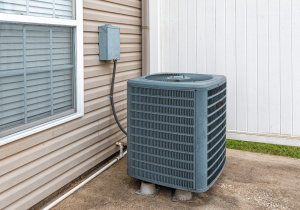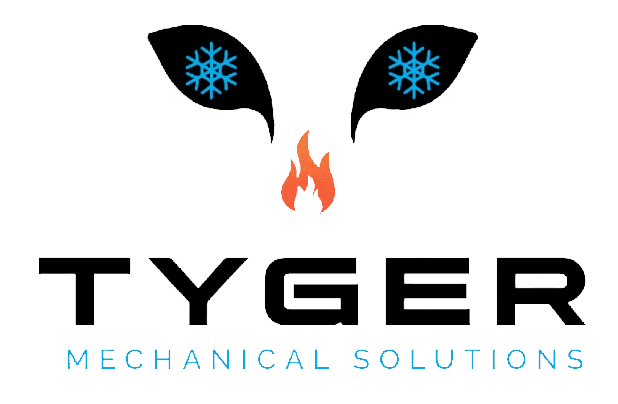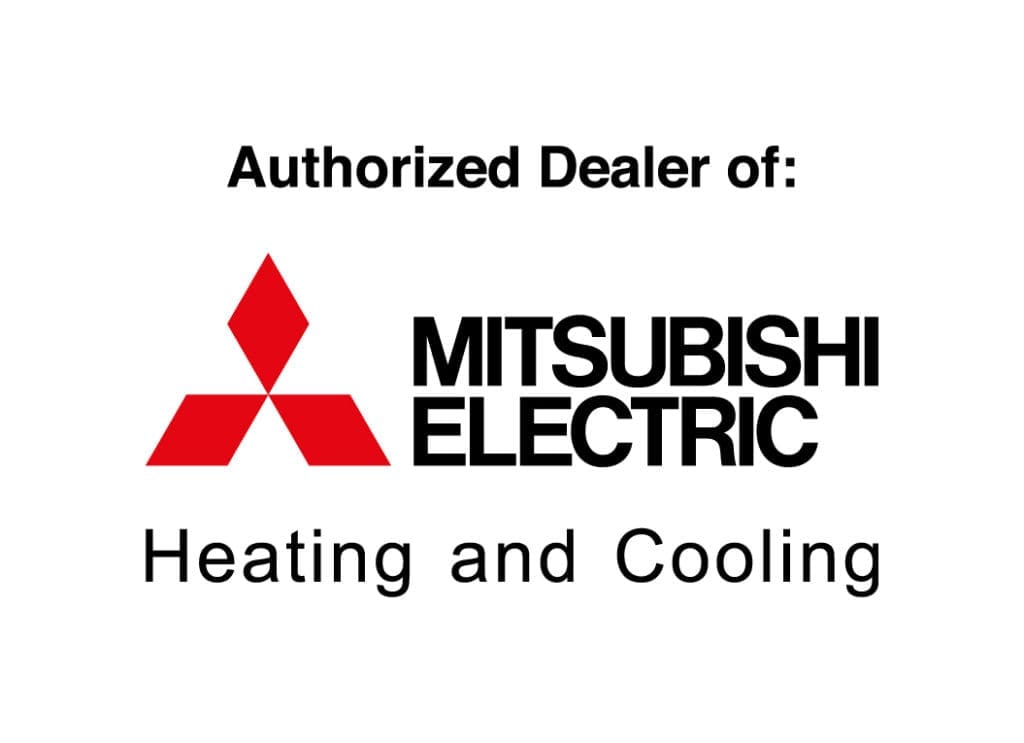Nestled in the southern tip of Ontario, Windsor-Essex County boasts a unique climate characterized by its proximity to the Great Lakes. This region experiences a combination of hot, humid summers and cold, snowy winters, with transitional seasons bringing their own set of weather conditions. While this diverse weather makes the area attractive for seasonal variety, it can pose significant challenges for your HVAC (Heating, Ventilation, and Air Conditioning) system. Whether you’re a homeowner or a business owner, these climate fluctuations demand extra attention to ensure your HVAC system remains efficient year-round.
Below, we’ll explore how Windsor-Essex County’s weather impacts your HVAC system and what preventative measures you can take to make sure it operates smoothly, no matter the season.
How Summer Weather Strains Your HVAC System
 Windsor-Essex sees summertime temperatures that can soar into the 80s and 90s (°F), often accompanied by high levels of humidity due to the area’s proximity to Lake Erie and Lake St. Clair. For many, air conditioning is not just a comfort during these months—it’s a necessity.
Windsor-Essex sees summertime temperatures that can soar into the 80s and 90s (°F), often accompanied by high levels of humidity due to the area’s proximity to Lake Erie and Lake St. Clair. For many, air conditioning is not just a comfort during these months—it’s a necessity.
Challenges for Your Cooling System
- High Energy Demand: With rising temperatures, your air conditioner has to work harder to cool your home or workplace, increasing energy consumption. This strain can lead to premature equipment wear if your system isn’t well-maintained.
- Humidity Control: Excess humidity puts additional strain on HVAC systems as they work to not only cool your space but also dehumidify it. Overloaded systems may fail to manage moisture levels effectively, leading to discomfort and potential indoor air quality issues.
- Clogged Filters and Reduced Airflow: Dust and debris accumulate more quickly in the summer, especially in environments with high pollen or air pollutants. These clogged filters further reduce an air conditioning unit’s efficiency.
What You Can Do in the Summer
- Schedule Regular Maintenance: Have an HVAC professional inspect your system before the cooling season starts. Routine maintenance ensures your air conditioner operates efficiently and reliably throughout the summer.
- Upgrade to a Programmable Thermostat: A smart or programmable thermostat can regulate indoor temperatures while reducing unnecessary energy use.
- Consider a Dehumidifier: If your HVAC system struggles with humidity levels, adding a whole-house dehumidifier can ease the burden and improve indoor comfort.
Winter’s Impact on Heating Systems
While Windsor-Essex enjoys relatively milder winters compared to other parts of Canada, temperatures can often plunge below freezing, and the area experiences significant snowfall and windy conditions. These winter extremes heavily tax furnaces and heating systems.
Challenges for Your Heating System
- High Heating Load: Heating systems often run for extended periods during frigid weather, leading to increased energy use and wear on components like burners, heat exchangers, and blowers.
- Frozen Pipes and Components: Outdoor HVAC components, such as heat pumps, can freeze or malfunction due to ice and snow accumulation.
- Air Leaks and Poor Insulation: Drafty windows, doors, or poorly insulated attics make your heating system work harder to maintain consistent indoor temperatures.
What You Can Do in the Winter
- Seal Air Leaks: Inspect your home or building for drafts and seal any gaps around doors, windows, and vents to prevent heat loss.
- Clean and Maintain Heating Units: Replace filters regularly, clean vents and ducts, and make sure your furnace receives a professional tune-up at least once a year.
- Invest in a Reliable Heating Unit: If your system is aging or inefficient, consider upgrading to a high-efficiency furnace to lower energy costs and ensure reliable performance.
How Transitional Seasons (Spring & Fall) Affect HVAC Systems
The transitional months of spring and fall bring fluctuating temperatures to Windsor-Essex County. These seasons pose unique challenges for HVAC systems, as residents often switch between heating and cooling in the same week—or even the same day.
Challenges During Transitional Seasons
- Frequent System Cycling: Constantly shifting between heating and cooling can shorten an HVAC system’s lifespan due to increased wear on components like the compressor and fan motors.
- Air Quality Concerns: Spring introduces allergens like pollen, while fall brings dust and debris from harvest season. Both can clog filters and affect indoor air quality.
What You Can Do in Transitional Months
- Replace Filters More Frequently: During spring and fall, check and replace HVAC filters more often to maintain good airflow and reduce strain on the system.
- Switch to ‘Auto’ Mode: Use your thermostat’s ‘Auto’ mode to minimize unnecessary system cycling as it adjusts automatically to temperature changes.
- Inspect Your Ductwork: Leaks or buildup in duct systems often go unnoticed. Schedule a duct cleaning and inspection to boost system efficiency and air quality.
The Unique Challenges of Coastal Weather in Windsor-Essex
 Living near large bodies of water adds complexity to HVAC maintenance in Windsor-Essex County. Lakeside moisture not only increases humidity in the summer but also accelerates corrosion and rusting of outdoor HVAC components year-round. High winds can exacerbate the problem by carrying debris, potentially clogging or damaging sensitive parts of your system.
Living near large bodies of water adds complexity to HVAC maintenance in Windsor-Essex County. Lakeside moisture not only increases humidity in the summer but also accelerates corrosion and rusting of outdoor HVAC components year-round. High winds can exacerbate the problem by carrying debris, potentially clogging or damaging sensitive parts of your system.
Tips for Protecting Your HVAC System from Coastal Weather
- Install a Protective Cover: Consider weather-resistant covers for outdoor units to shield them from excessive moisture, ice, and debris.
- Rust-Proof Outdoor Units: Regularly inspect and treat metal components to prevent rust or corrosion due to exposure to humid conditions.
- Clear Debris Around Outdoor Units: Ensure proper airflow by keeping leaves, branches, and other debris at least two feet away from your HVAC unit.
Why Regular Maintenance is Crucial in Windsor-Essex County
Given the diverse weather challenges in Windsor-Essex, regular HVAC maintenance isn’t just recommended—it’s essential. A professional HVAC tune-up ensures that your system is prepared to battle the highs and lows of the region’s climate.
Benefits of Regular Maintenance
- Enhanced Efficiency: Professional inspections and cleaning improve system efficiency and lower energy consumption.
- Prolonged System Lifespan: Catching and fixing minor issues early prevents costly breakdowns and extends the life of your HVAC equipment.
- Improved Indoor Air Quality: Clean filters, ducts, and components result in fresher, healthier air inside your home or building.
- Lower Costs: Regular maintenance helps avoid emergency repairs and keeps your energy bills manageable, even during peak heating or cooling seasons.
Don’t wait for a sudden breakdown to act – schedule an HVAC inspection with Tyger Mechanical Solutions today and ensure your system is ready for anything Windsor-Essex County’s weather throws your way.






